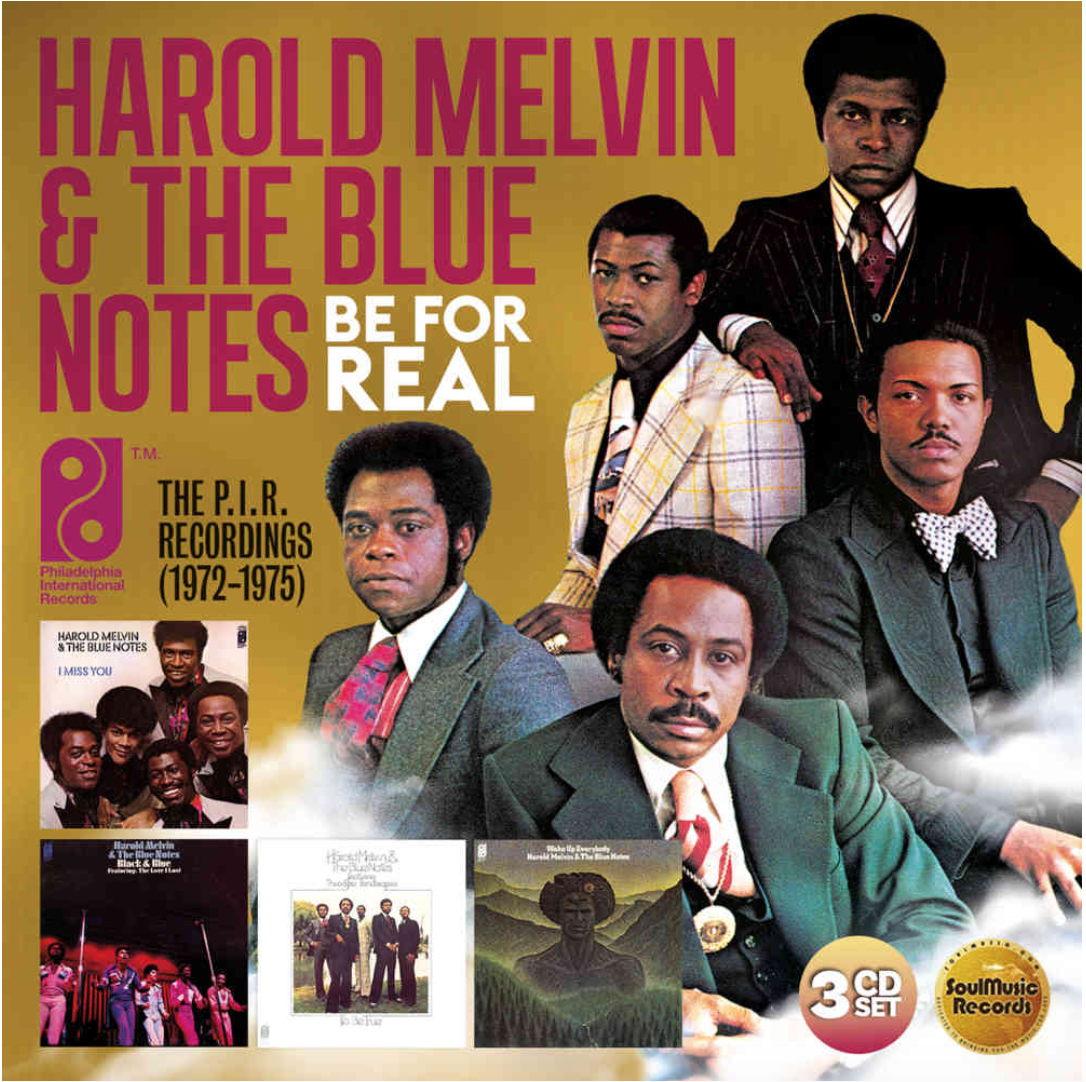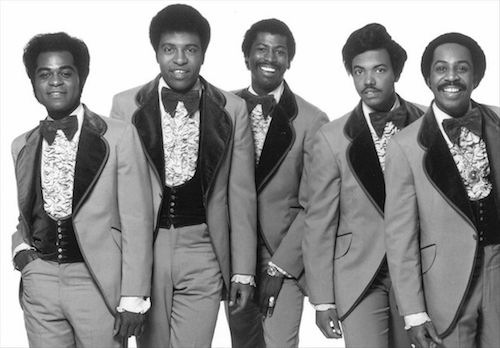 Harold Melvin & The Blue Notes were one of the very first groups to achieve global success for Philadelphia International Records, which was founded by Kenny Gamble and Leon Huff in 1971. (Others included the O’Jays, MFSB, Lou Rawls and Patti Labelle.) The 1972 release of two consecutive ballads – “I Miss You” and “If You Don’t Know Me By Now,” the latter, a #1 pop hit and R&B chart topper – marked the start of a four-year association that yielded some of the most enduring recordings in contemporary soul music and a handful of timeless dance music classics including “The Love I Lost,” “Bad Luck” and “Don’t Leave Me This Way.”
Harold Melvin & The Blue Notes were one of the very first groups to achieve global success for Philadelphia International Records, which was founded by Kenny Gamble and Leon Huff in 1971. (Others included the O’Jays, MFSB, Lou Rawls and Patti Labelle.) The 1972 release of two consecutive ballads – “I Miss You” and “If You Don’t Know Me By Now,” the latter, a #1 pop hit and R&B chart topper – marked the start of a four-year association that yielded some of the most enduring recordings in contemporary soul music and a handful of timeless dance music classics including “The Love I Lost,” “Bad Luck” and “Don’t Leave Me This Way.”
A Philadelphia-based group, The Charlemagnes, became The Blue Notes after Harold Melvin joined them in the mid-‘50s and after a number of personnel changes became Harold Melvin & The Blue Notes. While on the popular lounge circuit, Melvin had hired Theodore Pendergrass as the new drummer for the group’s touring band in 1970 and by the time the quintet joined the fledgling roster at P.I.R., he had emerged as the lead singer, with his gospel-honed, passion-filled vocals.
All told, the group ruled the R&B charts in the ’70s with ten Top 10 singles. A 36-track, 3-CD box set, Harold Melvin & The Blue Notes: Be For Real – The P.I.R. Recordings (1972 – 1975), was released via the U.K.’s Cherry Red Records in 2019.
Melvin was born on June 25, 1939. He died on March 24, 1997.
Related: See where they ranked among 1972’s biggest singles
The groundbreaking Philadelphia International label, founded in 1971 by innovative and prolific songwriters/producers Kenneth Gamble and Leon Huff, became the birthplace, incubator and launching pad for the sophisticated Philly Soul sound also known as “The Sound of Philadelphia.” The duo amassed an extraordinary array of producers, songwriters, musicians and engineers including Thom Bell, Dexter Wansel, Bobby Martin, MFSB, Joe Tarsia and more to help craft some of the most memorable lyrics and melodies of the past five decades. The legendary roster of music stars who helped bring these chart-topping disco, R&B, soul and funk sounds to life also included The O’Jays, Patti LaBelle, Billy Paul, Lou Rawls, McFadden & Whitehead, the Three Degrees, Phyllis Hyman, the Intruders, the ultimate “house band” MFSB, and many others.
A limited edition 9-disc set, Get on Board the Soul Train: The Sound of Philadelphia International Records, Volume 1, was released on May 28, 2021. The set includes a 48-page hard cover book, with rare photographs, liner notes by Tony Cummings (author of The Sound of Philadelphia) and a foreword by Ralph Tee. The eight classic albums included in Volume 1 comprise: Billy Paul – Going East, Harold Melvin & the Blue Notes – I Miss You, The O’Jays – Back Stabbers, Billy Paul – 360 Degrees of Billy Paul, Dick Jensen – Dick Jensen, The Intruders – Save the Children, MFSB – MFSB, and Billy Paul – Ebony Woman. Exclusive 12″- The O’Jays – “Back Stabbers” / MFSB – “Back Stabbers.”
Pendergrass was the subject of another recent documentary, If You Don’t Know Me, described as “the powerful and moving story of [the] R&B star, who was on the brink of global superstardom when tragedy struck. A compelling tale with surprising twists and turns, the film is an intimate portrait of one of the greatest singers of his generation. It also tells how Teddy fought for the rights of African-American artists in a 1970s music industry prejudiced against black performers and reveals how, aged just 31, Pendergrass overcame terrible tragedy to get back on stage against all the odds.”
The feature-length film was released in 2019. It features archival footage, interviews with his family, including Teddy’s ex-wife Karen, mother Ida – who turned 102-years-old in 2020 – as well as friends and industry legends, Gamble and Huff.
Watch the film’s trailer
In March 1982, Pendergrass was in a car accident that left him paralyzed from his chest down. He made an emotional return to the stage when he sang “Reach Out and Touch” with Ashford & Simpson at 1985’s Live Aid in Philadelphia.
In 1988, he returned to the top of the R&B chart with the single, “Joy.” He died at 59 on January 13, 2010 of respiratory failure.

